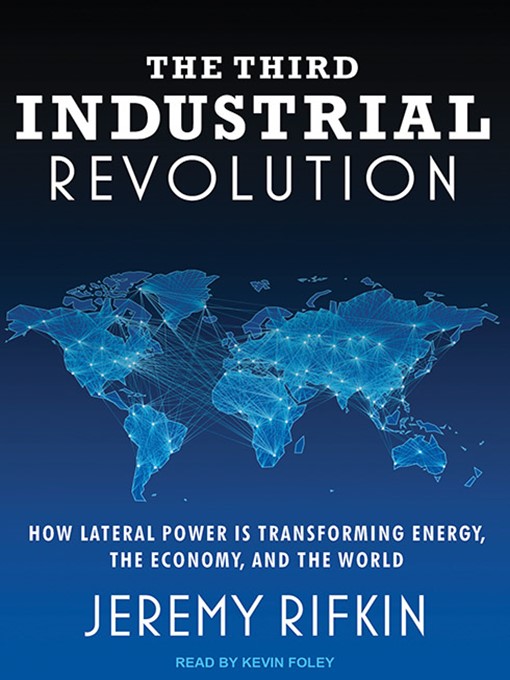The Third Industrial Revolution
How Lateral Power Is Transforming Energy, the Economy, and the World
Here, Jeremy Rifkin explores how Internet technology and renewable energy are merging to create a powerful "Third Industrial Revolution." He asks us to imagine hundreds of millions of people producing their own green energy in their homes, offices, and factories and sharing it with each other in an "energy Internet," just like how we create and share information online.
Rifkin describes how the five pillars of the Third Industrial Revolution will create thousands of businesses and millions of jobs and usher in a fundamental reordering of human relationships—from hierarchical power to lateral power—that will impact the way we conduct commerce, govern society, educate our children, and engage in civic life.
Rifkin's vision is already gaining traction in the international community. The European Parliament has issued a formal declaration calling for its implementation, and other nations in Asia, Africa, and the Americas are quickly preparing their own initiatives for transitioning into this new economic paradigm.
The Third Industrial Revolution is an insider's account of the next great economic era, including a look into the personalities and players—heads of state, global CEOs, social entrepreneurs, and NGOs—who are pioneering its implementation around the world.
-
Creators
-
Publisher
-
Release date
December 12, 2011 -
Formats
-
OverDrive Listen audiobook
- ISBN: 9781452625652
- File size: 356825 KB
- Duration: 12:23:23
-
-
Languages
- English
-
Reviews
-
AudioFile Magazine
This is the latest in a long line of stimulating treatises from one of the most energetic scientific futurists of our time. Rifkin lays out his vision for the next industrial revolution (our third), to be built around green-power generation and the Internet. Kevin Foley's classroom-lecture style works with this visionary text on the planet's future. But the often dry nature of the book is only marginally invigorated by his plodding pace. This is the kind of work that would have benefited from a more active vocal delivery. So while the narrator's enunciation is clear, the author's passion sounds muted. M.C. (c) AudioFile 2012, Portland, Maine -
Publisher's Weekly
June 13, 2011
Rifkin, who has long studied how Europe is reducing its dependence on fossil fuel energies (and how the U.S. is failing to keep up), makes an important, impeccably argued call for wide-scale societal collaboration to forestall devastating climate change. Industrial civilization, he says, is at a crossroads; our reliance on carbon-based energy has created debt, destruction, and a plummeting living standard, and we need a new paradigmâa third Industrial Revolution. He proposes steps that would help us avert catastrophic climate change: a shift to renewable energy, the worldwide creation of microâpower plants, updating energy storage technologies, creating an energy-sharing intergrid, and transitioning to electric plug-in and fuel-cell vehicles. In his dense, thoughtful style, Rifkin discusses the benefits of actions big and smallâfrom vegetarianism to microlending for local green energy generationâand how, given the U.S.'s worrying refusal to acknowledge the gravity of the situation, a true fix will require a powerful renewable energy lobby, big business, government, and civil society to come together on this issue. Though the average reader may find some of the science slow going at times, this is a compelling and cogent argument to overhaul our society and economy in favor of a distributed and collaborative modelâto "begin to think of ourselves as a global family."
-
Loading
Why is availability limited?
×Availability can change throughout the month based on the library's budget. You can still place a hold on the title, and your hold will be automatically filled as soon as the title is available again.
The Kindle Book format for this title is not supported on:
×Read-along ebook
×The OverDrive Read format of this ebook has professional narration that plays while you read in your browser. Learn more here.


